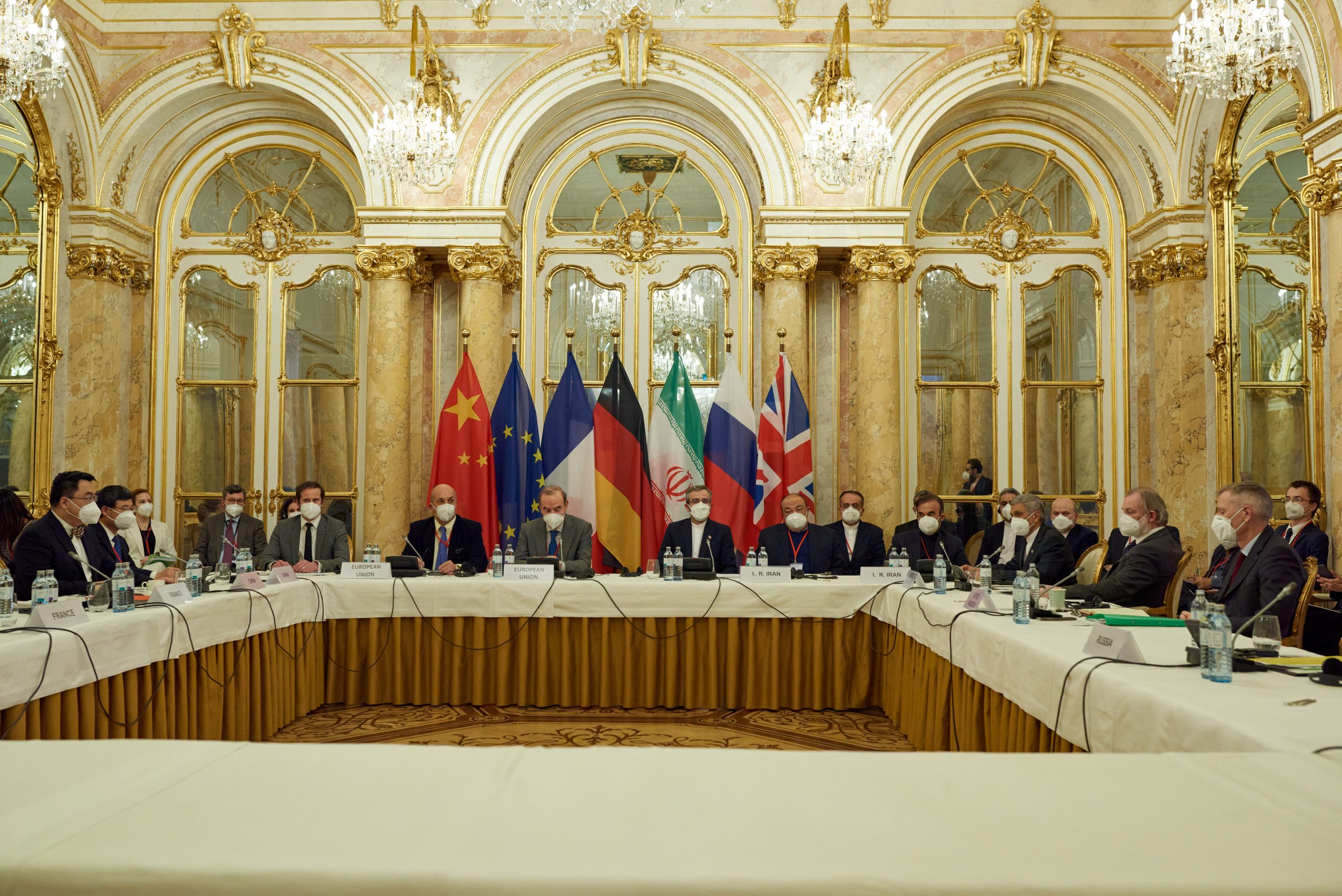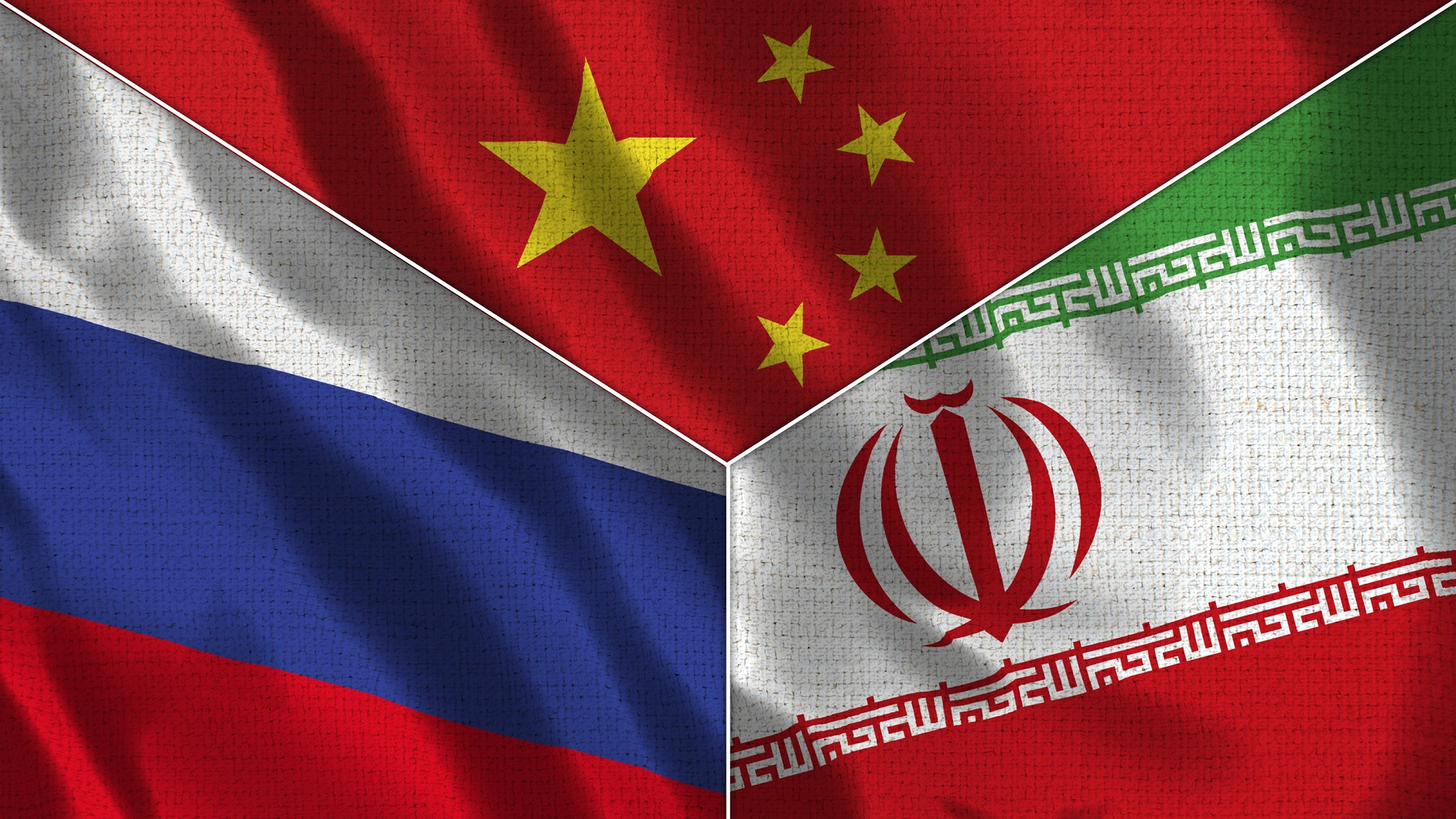Publications
INSS Insight No. 1557, February 21, 2022
Against the background of the nuclear talks in Vienna, the question arises whether China and Russia can persuade Iran to reach a new deal with the powers. This article reviews how China and Russia percieve their relations with Iran and what their interests are in the negotiations, and assesses whether the talks could achieve agreement over the future of the Iranian nuclear program.
The talks in Vienna between Iran and the P5+1 countries about the return of the United States to the nuclear treaty (JCPOA) have continued intermittently for many months, and they appear to be approaching the moment of decision. As in the previous round of talks in 2015, Russia and China are once again playing an important role, as permanent members of the UN Security Council and by virtue of their relative closeness to Iran. However, the worldviews and values that dictate their foreign policies are materially different from those of Western countries. In addition, they see the Vienna talks as a further opportunity to position themselves globally. This article analyzes the broad link between their particular strategies and interests, which affect their conduct at the talks in Vienna.
The worldviews of both Russia and China are drawn from their respective pasts, and this influences their current policies to a great extent. Russia aims to recover its former glory and become a global power once again, like the Soviet Union. But while the Soviet Union sought to export an ideology, Russia is free of the ideological yoke and is therefore far more flexible on foreign affairs. Russia’s policy also derives from its ambitions to influence and challenge the world order led by the United States, and it wants to create a strategic depth that will operate as a security buffer against external threats. It is working to promote these positions through a complex system of strategic alliances, which allows it to maintain relations with countries that are hostile to each other and to position itself as a great power.

Like Russia, China also remembers the glory of its past in the Imperial period – which the Communist Party wishes to restore – and even more so, “the hundred years of humiliation” at the hands of the West that ended this period. Accordingly, China has adopted the principle of “non-intervention in the internal affairs of other countries”; it objects to the imposition of sanctions as a means of pressure and pushes for dialogue to resolve problems. Furthermore, the regime makes sure to present the Chinese government model and its modus operandi as preferable to those of the West and preaches “a new era of shared destiny.” China is proud of its economic power after decades of difficulties and reforms, evidenced by the global projects in the Belt and Road Initiative framework, which helps to position it as a reliable power that benefits the whole world. The focus of its economy and its worldview that economic development leads to stability and peace also enable Beijing to maintain parallel relations with mutually hostile countries, including Iran and Saudi Arabia.
For both Russia and China, Iran is part of a very important region, and hence the basis of their policy toward it. In economic terms, the Middle East is an important market for Russian weapons and for energy deals. An example is the civilian nuclear reactor built by Russia in Bushehr. The region is also an essential source of energy for China, and fertile ground for various projects in fields such as transport, smart cities, and 5G. From a geopolitical standpoint, both countries object to American global leadership because of their desire to re-establish their central position globally, but their methods are different. Russia is active in reducing American influence and deliberately presents itself as an alternative to the US in the region. On the other hand, China is careful to announce that it has no desire to replace the US in the Middle East, but in fact is expanding its economic and political influence over countries in the region. For example, in mid-January 2022, Chinese Foreign Minister Wang Yi met separately with the foreign ministers of Saudi Arabia, Bahrain, Kuwait, Oman, Turkey, and Iran, and with the General Secretary of the Gulf Cooperation Council (GCC); he declared that the Middle East has no need of an “external patriarch” and that the people of the region should be masters of their own fate. At the same time, China made sure to invite heads of state to the opening ceremony of the Winter Olympics in Beijing (February 4), including Egypt, Saudi Arabia, United Arab Emirates, and Qatar – as a demonstration of its opposition to the diplomatic boycott of the ceremony imposed by the United States.
The current situation in Iran and the lack of progress toward a renewed nuclear deal serve both Russian and Chinese strategies. Moreover, the scenario of Iran advancing to the nuclear threshold does not threaten Russia and China in the same way that it threatens the West – even if they would both prefer that Iran not acquire nuclear weapons.
Neither Moscow nor Beijing is excited by the possibility of improved relations between Iran and the West, as it would reduce Iranian dependency on them. Relations between Iran and China are not as strong as they are perceived in the West, and Iran is making great efforts to unite with Europe in order to reduce its dependence on the Chinese economy. Reaching an agreement would bring Iran closer to Europe and limit its dependence on China. In addition, the American sanctions help China, which can import oil from Iran on easy terms, whether through private refineries that are not worried by American sanctions, transfer of crude oil through third countries, or smuggling. Trade relations between Russia and Iran have also grown in recent years, and to a large extent relate to the food industry, which is not subject to the American sanctions – even though the figures for Russia’s trade relations with other countries in the region are higher. If in 2015 Russia was interested in exerting pressure on Iran to sign the nuclear deal in order to promote its sale of the S-300 air defense system, the situation has now changed after the lifting of the arms embargo on Iran. Moreover, Iran’s return to the global market of energy exports following the signing of a nuclear deal could harm Russian revenues, since a considerable portion of its income derives from this market. Thus, it appears that Russia and Iran are preparing the ground for deeper relations if the talks fail to achieve an agreement. This can be seen, inter alia, from the visit of Iranian President Raisi to Moscow at the end of January 2022, the announcement of a newly signed cooperation agreement between the countries, and Russia’s recent efforts to improve its image in Iran, including explanations by senior figures in the Iranian political system regarding cooperation with Russia.
On the other hand, China and Russia do not want the hostile relations between Iran and the United States and Israel to escalate into a military conflict, which could upset the entire region. For Russia, such a conflict would place it at a difficult crossroads, require it to choose a side, and possibly harm its regional influence as a whole. For China, any fighting means instability and interference with its wide-ranging economic activity in the region. Moreover, the collapse of the talks could lead to more severe sanctions on Iran, which could affect Chinese companies operating in that country, as well as options for economic cooperation with Russia.
Therefore, the continuation of the talks in Vienna works in their favor, enables both to preach against the “unilateral” and “thuggish” conduct of the United States, and to demand concessions on matters that are important to them. For Putin, the talks can be a bargaining card against the West on the Ukrainian issue, and he could promote the talks and join the pressure on Iran in return for concessions in Eastern Europe. For China, which is presented as a broker between the United States and Iran, the continuation of the talks reinforces its image as a key actor and an important power, and encourages Western countries to set aside controversial issues such as human rights in Xinjiang or freedom of shipping in the South China Sea.
In conclusion, the nuclear talks in Vienna are another forum for the ambitions of China and Russia to reinforce their status in the Middle East and in the world in general, as part of their efforts to position themselves as global powers. For Russia, failure of the talks is not as threatening as it is perceived in the West, since their continuation allows it to try and leverage its influence to obtain concessions from the United States and Europe, although with little success so far. For China, putting pressure on Iran could depict it as interfering in the internal affairs of a third country and thus endanger its standing as an honest broker if the talks break down. Therefore both countries seek to achieve an agreement that will cast them in a positive light and in essence will not be seen as yielding to the terms of the United States. However, because of the particular interests and worldviews of these two countries, they are not expected to exert economic or political pressure on Iran that might spur it to agree to the demands made by Western countries in order to achieve an agreement.



